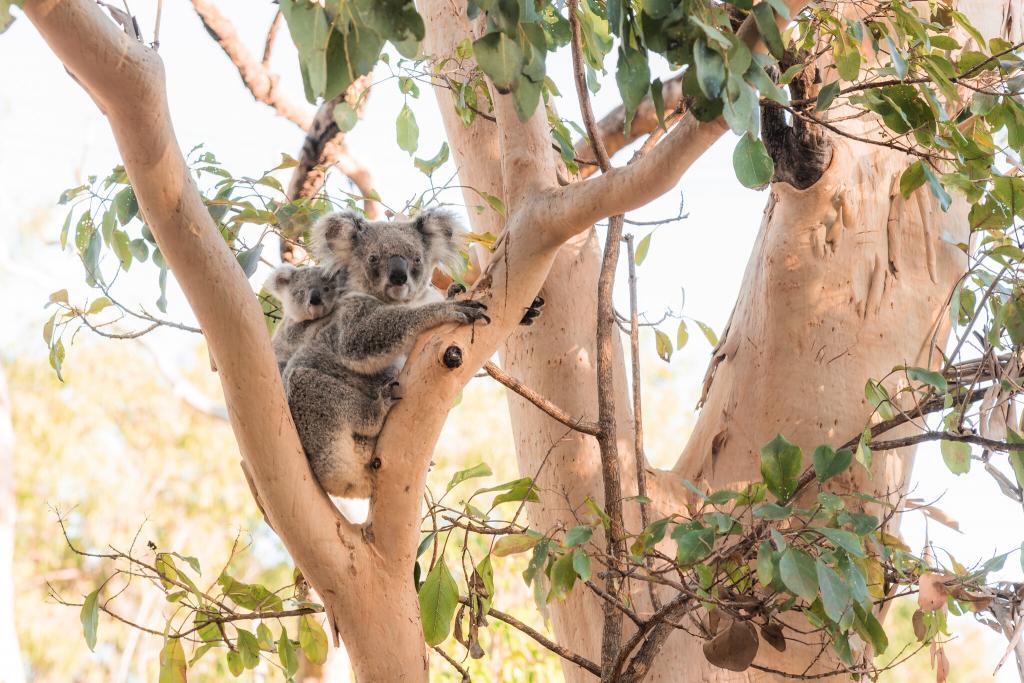-
YHA Australia’s new wildlife friendly travel guidelines for tourists
November 11, 2023
PRESS RELEASE

Budget travel accommodation organisation YHA Australia is working with World Animal Protection to produce new wildlife friendly travel guidelines.
The aim of the guidelines is to promote sustainable wildlife tourism in Australia.
Read about the Wildlife Heritage Areas that have been announced by World Animal Protection to further promote sustainable wildlife experiences
YHA’s commitment to sustainable wildlife experiences
Travelers staying at YHA Australia accommodation are given information about activities they can do while in the country.
But from now on, guests at the organisation’s 40 properties will receive the new guidelines that only promote tours and experiences that are animal and wildlife friendly.
YHA Australia says its core purpose is to create an open and accommodating world where all life flourishes.
The organisation reassessed its processes and purpose following the pandemic.
“Implementing these guidelines is just the beginning,” says Paul McGrath, CEO of YHA Australia.
“We’re eager to see the positive change they will bring about not only in our properties but the natural world that our guests are so eager to explore.
“These guidelines are but a first step in a longer journey to prioritising wildlife wellbeing and education across the organisation’s network.”

A Cheetah in a World Heritage Areas location (image: World Animal Protection)
Tourists want an end to animal suffering and wildlife cruelty
World Animal Protection’s 2022 global poll interviewed 23,000 people across 15 countries and found that 82% percent of respondents believe tour operators should not sell activities which cause suffering to wild animals.
“We applaud YHA’s positive move to guide their travelers towards responsible experiences,” says Suzanne Milthorpe, Head of Campaigns at World Animal Protection.
“The decision to remove close interactions with wild animals such as koalas, who we know become stressed around humans, marks a significant step towards a responsible and sustainable future for travel.”

Suzanne Milthorpe from World Animal Protection says the Wildlife Heritage Areas are a massive step forward for responsible travel (image: WAP)
Wildlife friendly travel guidelines; promoting sustainable wildlife experiences

World Animal Protection encourages tourists to take part in tours or experiences that do not cause harm to wild or captive wild animals (image: WAP) The guidelines list wildlife tourism experiences that are educational and align with responsible wildlife tourism.
They promote responsible and sustainable wildlife experiences that minimise negative impacts on animals.
Importantly, they still offer unforgettable and meaningful experiences for travelers to learn about the natural world.
Both YHA Australia and World Animal Protection want tourists to experience wild animals responsibly.
That means, either in the wild or in genuine sanctuaries, not entertainment venues.
“YHA Australia accepts a responsibility to preserve our natural world and the incredible wildlife that inhabits it,” Paul McGrath says.
“These guidelines reflect YHA Australia’s commitment to promoting conservation.
“Ensuring our guests have the opportunity to connect with wildlife in a way that respects and safeguards it.”
YHA will audit the existing promoted product to adopt to the new guidelines.
It also will be assessing all product and auditing content on the website and social channels.
Suzanne Milthorpe would like to see guidelines like these in use across the industry.
“We believe that wildlife travel can be a force for good in the world, when done with care.
“We hope to see more companies take responsibility for the activities and venues they promote.
“(and) work towards a future where tourism does not contribute to wildlife exploitation.”

Spot a koala in their natural habitat on Magnetic Island (image: World Animal Protection)
Examples of wildlife venues or activities promoted in the new YHA Australia guidelines:
Wildlife sanctuaries, rehabilitation facilities and rescue centres, such as those certified by the Global Federation of Animal Sanctuaries (GFAS). These sanctuaries have a genuine non-tourism function and meet a set of ethical requirements.
Responsible wildlife watching, where travelers observe animals in their natural environment from a safe and respectful distance, without luring or baiting or interrupting animals’ natural behaviours.
Zoos and aquariums who are members of the World Association of Zoos and Aquariums (WAZA), and whose primary offerings do not include close encounter-style activities.
Examples of tours or experiences that YHA and World Animal Protection do not want tourists taking part in:
Close interactions (such as touching, feeding, or approaching) wild animals, especially where it impacts their normal behaviour (like quokka selfies and approaching wild kangaroos)
Close interaction (like patting, holding, or riding) captive wild animals, unless it genuinely is part of their essential care (holing koalas, swimming with dolphins etc).
Up-close photo ops with wild or captive wild animals (such as tiger selfies).
Read YHA’s new wildlife guidelines in full.
READ MORE FROM ANIMAL FRIENDLY LIFE
The best school holiday programs, animal experiences for kids
See how Wildlife Heritage Areas promote sustainable tourism and responsible travel





